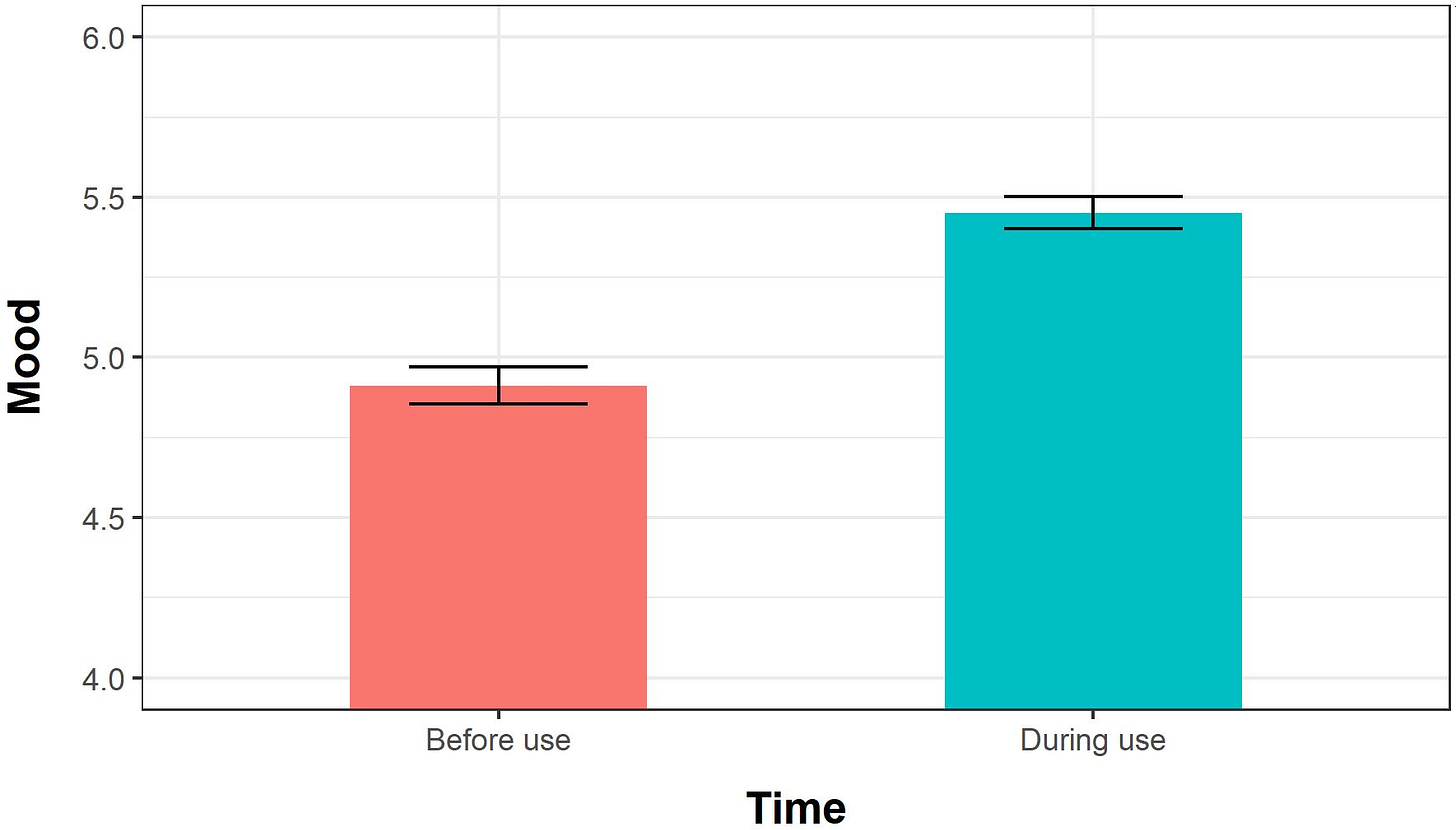My favorite new studies
The latest research on smartphones and mood, screen time strategies, and teaching babies to go down the stairs
Welcome to Techno Sapiens! I’m Jacqueline Nesi, a psychologist and professor at Brown University, co-founder of Tech Without Stress (@techwithoutstress), and mom of two young kids. Techno Sapiens is now home to over 25,000 readers, and I’m so grateful you’re here.
5 min read
The end of June is fast approaching, and here in the Northern Hemisphere, we’re currently enjoying the longest days of the year. I don’t know about you, but my extra daylight hours have been busy—researching swim lessons, signing my toddler up for swim lessons, bringing him to the pool for swim lessons, listening to him scream about hating swim lessons, calculating the hourly rate I paid to have him sit unmoving beside the pool instead of do swim lessons, bribing him with a visit to the firetruck to do swim lessons, etc.
Oh, and I also spent some time reading research. So, without further ado, let’s get to June’s Research Roundup. We’ve got three studies:
Can smartphones improve teens’ moods?
11,000 parents of 12- and 13-year-olds report on screen time strategies
How parents teach babies to go down the stairs safely
In case you missed it, two posts (available to all subscribers) went out last week: an essay on navigating work-life balance using CBT strategies, and an analysis of the Surgeon General’s recent call for warning labels on social media platforms.
1. Can smartphones improve teens’ moods?
This study came out a few weeks ago and was met with a number of breathless headlines about smartphones possibly being good for teens (can you believe it?!). Let’s take a look!
Researchers took a sample of 253 12- to 17-year-olds from across the U.S., and had them fill out very short surveys, five times per day, for 6 days. They answered questions like: whether they were using their smartphone at the time they got the survey notification, how long they had been using it for, their current mood (“Rate ur mood right now (1-7)”), and their mood before they started using their phone.
Teens reported better moods on surveys when they’d been using their phone at the time of the survey notification. Longer phone use was associated with better moods. They also indicated that their moods improved while using their phones, reporting lower mood prior to, versus after, phone use.

My take: This is a really interesting study—by using the many-short-surveys-per-day strategy (called “ecological momentary assessment”), the researchers are able to get a better sense of the specific timing of teens’ phone use and mood changes. But this strategy doesn’t solve everything. When teens reported on their moods prior to phone use, they still had to think back to a few minutes earlier and guess what they’d been feeling at the time (not so easy to do). Still, this study offers a nice counterpoint to the prevailing phones are toxic narrative—it’s not all bad, and we need better studies to tease apart when and why. PLOS One.
2. Parenting strategies and middle schoolers’ problematic screen use
What strategies are parents using to manage their middle schoolers’ media use? And how are those strategies working? One way to investigate this is to ask them…almost 11,000 of them. This study uses data from the Adolescent Brain Cognitive Development (ABCD) Study, an absolutely massive NIH-funded endeavor that’s been following 11,000+ children for a number of years, collecting survey questionnaires, brain scans, and more.
This particular study takes a snapshot of parent and child survey questions about media use at a single time point, when the children were ages 12-13. Though correlational (not causal), a few interesting findings emerged:
Keep reading with a 7-day free trial
Subscribe to Techno Sapiens to keep reading this post and get 7 days of free access to the full post archives.




